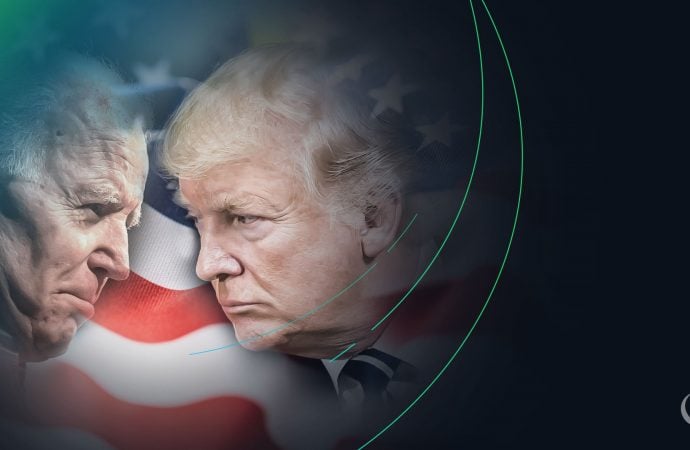Webinar (Nov 2, 7pm AEDT) Election Day Trading Plan REGISTER NOW
History of Incumbency Advantage
The 2020 Election presents a rare crossroads of history where we will see either the unusual defeat of a one-term president, or the unprecedented run of four straight two-term presidents.
Sitting presidents very rarely fail to win two terms in the White House. In the history of the United States, 12 sitting presidents have lost seeking re-election for a second term. In the last 125 years though, just five presidents have failed to return to the White House.
Since the introduction of two-term limits with the ratification of the 22nd Amendment in 1951, only three presidents have not won a second term. Gerald Ford lost on the back of the Watergate scandal that felled his predecessor Richard Nixon. Jimmy Carter lost to an incoming conservative tidal wave and a tanking economy. George H.W Bush went down to the charismatic Bill Clinton in what was a rare three-horse race.
While the loss of an incumbent president is rare, a run of four consecutive two-term presidents has been unprecedented in American history. In fact, only once in American history, finishing way back in 1825, had the nation seen three straight two-term presidents before Clinton, George W Bush and Barack Obama who all won eight years in the White House.
Will Incumbency help Trump return or is history going to sweep him from office?
Incumbency, of course, is a major advantage. During the internet era, no sitting president has failed to win re-election. Power attracts money and the office attracts resources. A shorter news cycle and a splintering of how information is consumed has given a sitting president a significantly larger advantage than those of a generation ago. The simple visibility and presence of a sitting president for four years is a major advantage over any opponent. The structural advantages of incumbency are immense and getting bigger.
The advantages of incumbency though can be overcome. They have been in the past. They will be again.
Conditions are certainly ripe for change. When an incumbent president is thrown from office, it is usually because of a tanking economy (Bush, Hoover) or a national crisis (Carter, Ford). America is in the throes of a pandemic that shows no sign of abating and opposition to Trump’s handling of it is unifying.
Another factor counting against Trump is a belief that the increasing polarisation of politics reduces the impact of incumbency. This has seen a solidification of bases voters are less inclined to defer to the office, arguably the greatest asset incumbency brings. There is less grey and more black and white.
Trump’s iconoclasm will also potentially eat away at his possible incumbency advantage. Trump has made a brand of denigrating institutions to promote his personal brand. That resonates with his base but makes winning votes based on respect for institutions difficult.
There is no doubt that incumbency has many advantages for a typical president, but as we have seen from the moment Trump declared that he will run for president, he is no typical candidate. This was evident throughout the 2016 campaign and in the four years of his tenure at the White House. The circumstances surrounding the 2020 election are even more unique which makes it arguably the most intriguing election race in American history.
For news, webinars, articles and analysis, visit our dedicated US Elections 2020 Page or sign up to our exclusive webinar series.
[webinars]
Bibliography
[2] https://en.wikipedia.org/wiki/
[3] https://politicalwire.com/







 Access +10,000 financial
instruments
Access +10,000 financial
instruments

